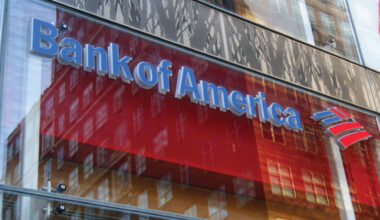Imagine never worrying about rechecking your bank account balance, being surprised by unexpected fees, and never having to meet tricky minimum balance requirements just to access your money.
That’s the essence of online banking, and it’s revolutionizing the industry at an unprecedented pace.
Dive into our guide and discover why the future of banking is looking brighter than ever, with free checking accounts leading the way.
Benefits of Online Banking
Online banking offers many advantages for both consumers and financial institutions, contributing to its increasing popularity and widespread adoption.
- Convenience and accessibility: Online banking enables customers to access their accounts 24/7 from any location with an internet connection. Users can perform various banking tasks seamlessly without visiting physical bank branches at home, at work, or on the go. This accessibility extends to multiple services, including checking account balances, transferring funds between accounts, paying bills, and depositing checks through mobile apps.
- Cost-effectiveness: Online banks typically have lower overhead costs than traditional brick-and-mortar banks, letting them offer fee-free checking accounts with no minimum balance requirements. This means customers can avoid many fees associated with traditional accounts, such as monthly maintenance and ATM fees.
Additionally, it helps customers save money, as they can avoid transportation expenses and potential charges for overdrafts or insufficient funds through real-time account monitoring and alerts.
- Enhanced security features: Multi-factor authentication methods, such as biometric authentication and one-time passwords, add an extra layer of security to avoid unauthorized access.
Furthermore, transaction notifications and account activity monitoring empower customers to detect and report suspicious or fraudulent activity quickly, enhancing overall account security and providing peace of mind.
- Streamlined financial management: With tools like budgeting calculators, expense tracking, and customizable spending categories, customers can track expenses and manage budgets effectively.
Moreover, automatic bill payments and recurring transfers help users stay organized and on top of their financial obligations. Seeing digital statements and their transaction history helps people check their money records easily, see how they spend over time, and make wise money choices.
- Integration with other financial services: Many online banks work well with other money services, like investment accounts, retirement accounts, and loans. This means you can handle all your money in one place, making it easy to see how you’re doing financially.
Also, these online banks connect with other money apps, making them even more useful. You get personalized help with your money to fit what you need.
The Rise of Fee-free Checking Accounts
In the past, many banks charged fees for things like maintaining a minimum balance or using certain services. This made it hard for some people, especially those with lower incomes, to afford traditional banking.
But now, more and more banks offer fee-free options, meaning customers don’t have to worry about these extra charges.
One option for free online banking with no deposit is SoFi’s checking account. With no minimums or account fees, customers can enjoy the benefits of online banking without any additional costs. SoFi’s offering includes FDIC-insured deposits, ensuring that customers’ money is protected up to the maximum law allows.
Additionally, SoFi’s checking account offers a competitive 0.50% APY, allowing customers to earn interest on their deposits while enjoying the convenience of fee-free banking.
The increasing popularity of online banking drives the rise of fee-free checking accounts. With online banking, people can do almost everything they need to manage their money from their computer or smartphone.
This convenience saves banks money because they don’t have to maintain as many physical branches or pay as many staff. As a result, they can afford to offer accounts with no fees or minimums.
Another factor driving the rise of fee-free checking accounts is competition. As more banks start offering these kinds of accounts, they must compete to attract customers. Offering fee-free accounts is one way they can do this. Users are likelier to choose a bank that doesn’t charge them extra fees, so banks are willing to change their policies to stay competitive.
Future Trends and Predictions of Online Banking
As we peer into the crystal ball of online banking, several trends and predictions emerge, shaping how we manage our money in the digital age.
- Expansion of digital banking services: More digital banking services mean more innovative features and options becoming available to consumers. For instance, we may see the integration of artificial intelligence (AI) and machine learning that provide personalized financial advice and automate routine banking tasks.
- Evolution of fee-free checking accounts: Furthermore, the concept of fee-free checking accounts is likely to evolve even further, with banks competing to offer more enticing benefits and rewards to attract customers. This could include perks such as cashback rewards on purchases, higher interest rates on savings accounts, or exclusive discounts on various services.
Additionally, we might witness the rise of niche banking platforms catering to specific demographics or interest groups, offering tailored services and incentives to meet their unique needs.
- Emphasis on cybersecurity measures: As more people use online banking, more bad actors will try to hack computer systems to steal money or personal information. Banks and financial institutions will invest heavily in advanced security protocols and technologies to safeguard against data breaches and fraud, ensuring customers can confidently bank online.
- Impact of regulatory changes and market forces: Governments may introduce new regulations to promote competition and consumer protection in the banking sector, while changes in technology and consumer behavior could drive further innovation and disruption.
The rise of fee-free checking accounts marks an exciting shift in online banking, offering greater accessibility and affordability for consumers. With convenience as a priority and traditional banks adjusting to stay competitive, the future of banking looks promising.
However, consumers need to stay informed and understand the terms of their chosen banking provider. By making smart choices, we can navigate this evolving landscape confidently, ensuring a bright financial future for all.






